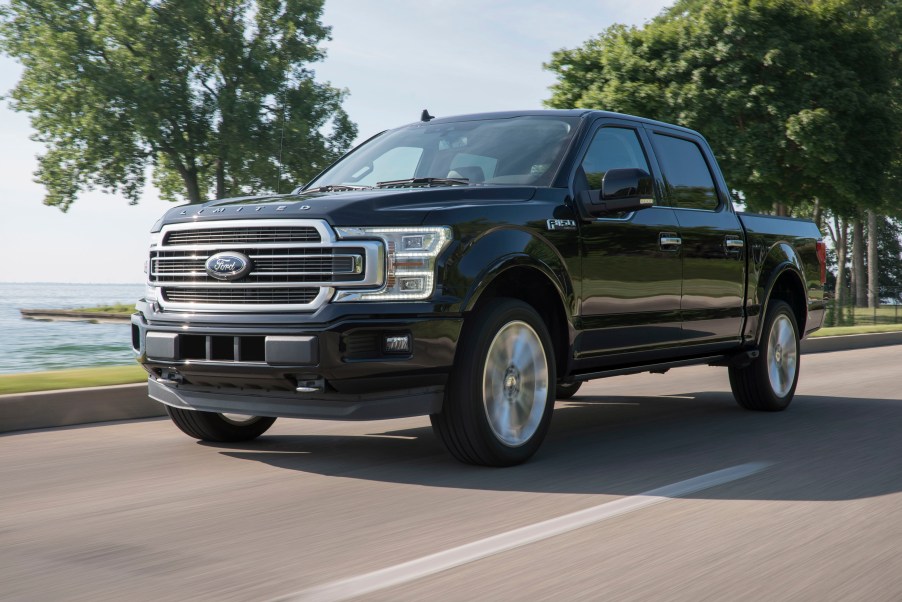
$1.2 Billion Lawsuit Claims Ford Lied About F-150 Gas Mileage
There are a variety of factors that govern how drivers choose which car to purchase. Some might look at reliability, safety, or costs. Whatever factor you look at, it is safe to say that a vehicle’s fuel efficiency is important to a lot of drivers. Considering how high fuel prices can get, a car’s fuel economy can either be a lifesaver or a burden.
But as the Detroit Free Press reports, if you to own a 2018 or 2019 Ford F-150, you could be spending an additional $2,000 just for fuel. This, according to a lawsuit filed against Ford that claims the company falsified results of fuel economy tests.
The billion-dollar lawsuit
Hagens Berman, a law firm based in Seattle, recently filed the suit. The firm is seeking to have it certified as a class action suit and is asking for $1.2 billion in damages.
The claim affects not only 2018 and 2019 Ford F-150 users, but also those driving the 2019 Ford Ranger. Since testing is still ongoing, the attorneys expect to add to the list of affected model and model-year cars as they receive results.
According to Hagens Berman’s managing partner Steve Berman, the economy promises made by Ford are allegedly nothing but smoke and mirrors. He says that after conducting their independent research, his firm discovered that Ford’s misled buyers. According to Berman, customers are paying more for the pickup trucks because of lower fuel economy, with owners of the F-150 trucks paying over $2,000 for fuel throughout the car’s lifetime.
Despite the suit having already been filed at the U.S District court, T. R. Reid, Ford spokesman, said that the automaker has yet to be served. He did comment on inquiries from the media, stating that the filed case appears to be similar to other filings the same law firm previously filed, finally adding that the media should not confuse claim with merit.
Previous investigations
While driving at a constant speed over a level smooth surface, the force imparted on the car from elements like driveline losses, aerodynamic drag, and tire rolling resistance is what the EPA refers to as road-load.
On the 21st of February this year, Ford said that its employees had raised concerns regarding how the company calculated road-loads. These road-loads are used to provide the EPA with a vehicle’s mpg ranges. Ford says that during that period, it launched an internal investigation into whether the gas mileage and pollutant emissions of their cars, pickups, and SUVs are worse than the values indicated on their labels.
In April of 2019, the Department of Justice began investigating the testing processes Ford used for its 2019 Ranger. The investigations were directed towards the company’s road-load estimates. This also included the coastdown and analytical procedures that are used to identify EPA’s figures of fuel efficiency.
The suit claims that after tests conducted using EPA-mandated procedures for coastdown, the plaintiffs found that the F-150’s fuel economy was overstated by 10% for the city’s mileage and 15% for highway.
The lawsuit alleges that Ford used incorrect drag and resistance numbers to improve the car’s EPA ratings. However, Edmunds, an auto expert firm, did not make any comment regarding the validity of the suit’s research.
The suit further calculates that assuming a truck’s lifetime is 150,000 miles, based on their tests and an average national fuel price of $2.79, driving in the city would reportedly consume an additional 821 gallons that would add extra fuel costs amounting to $2,290. On the other hand, additional fuel consumed on the highway would allegedly be 968 gallons, which amounts to $2,700.
In addition to the recovery of damages caused by the alleged incorrect fuel economy, the suit is also seeking to get an injunction that would stop the company from designing, manufacturing, marketing, selling, and leasing the trucks.


